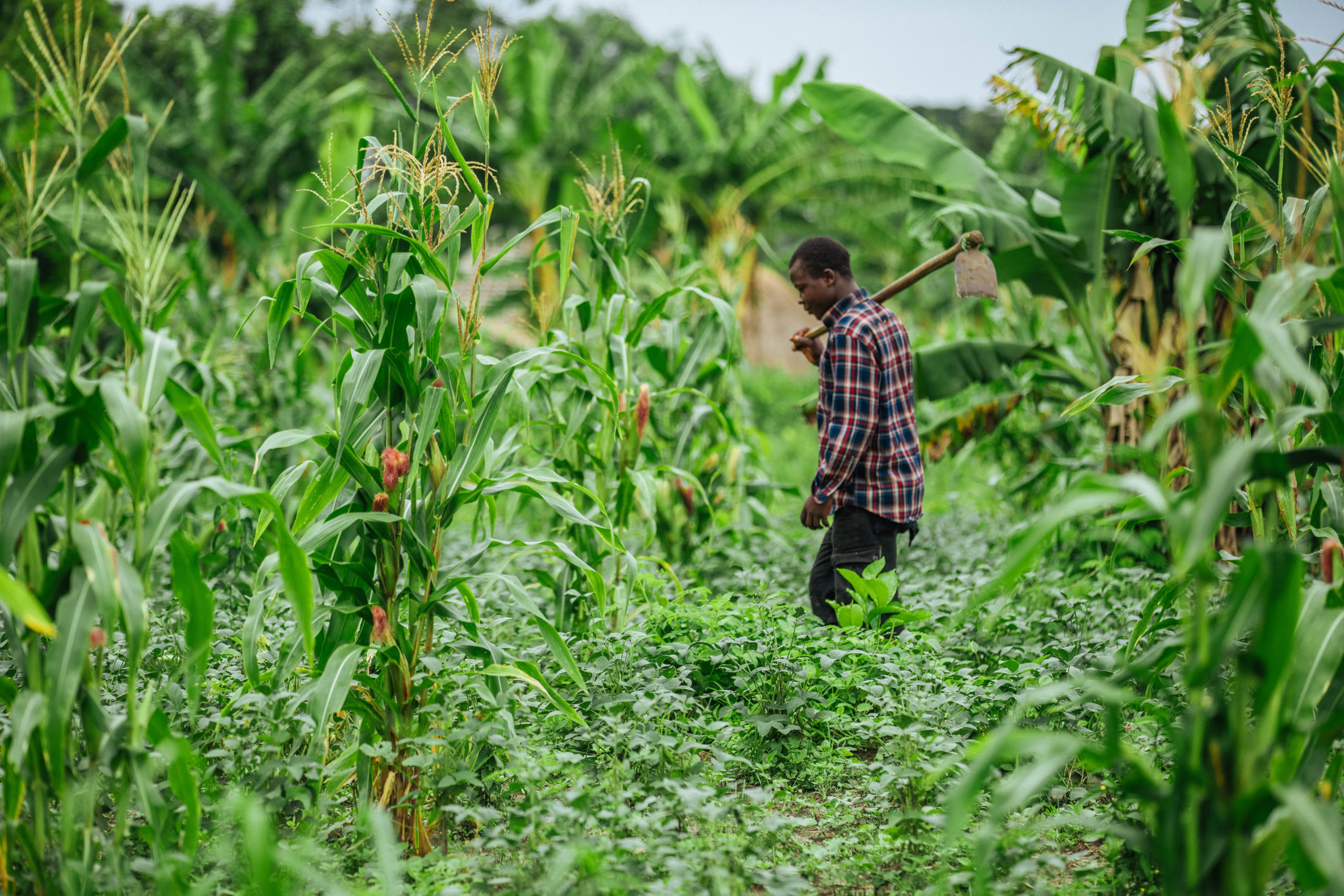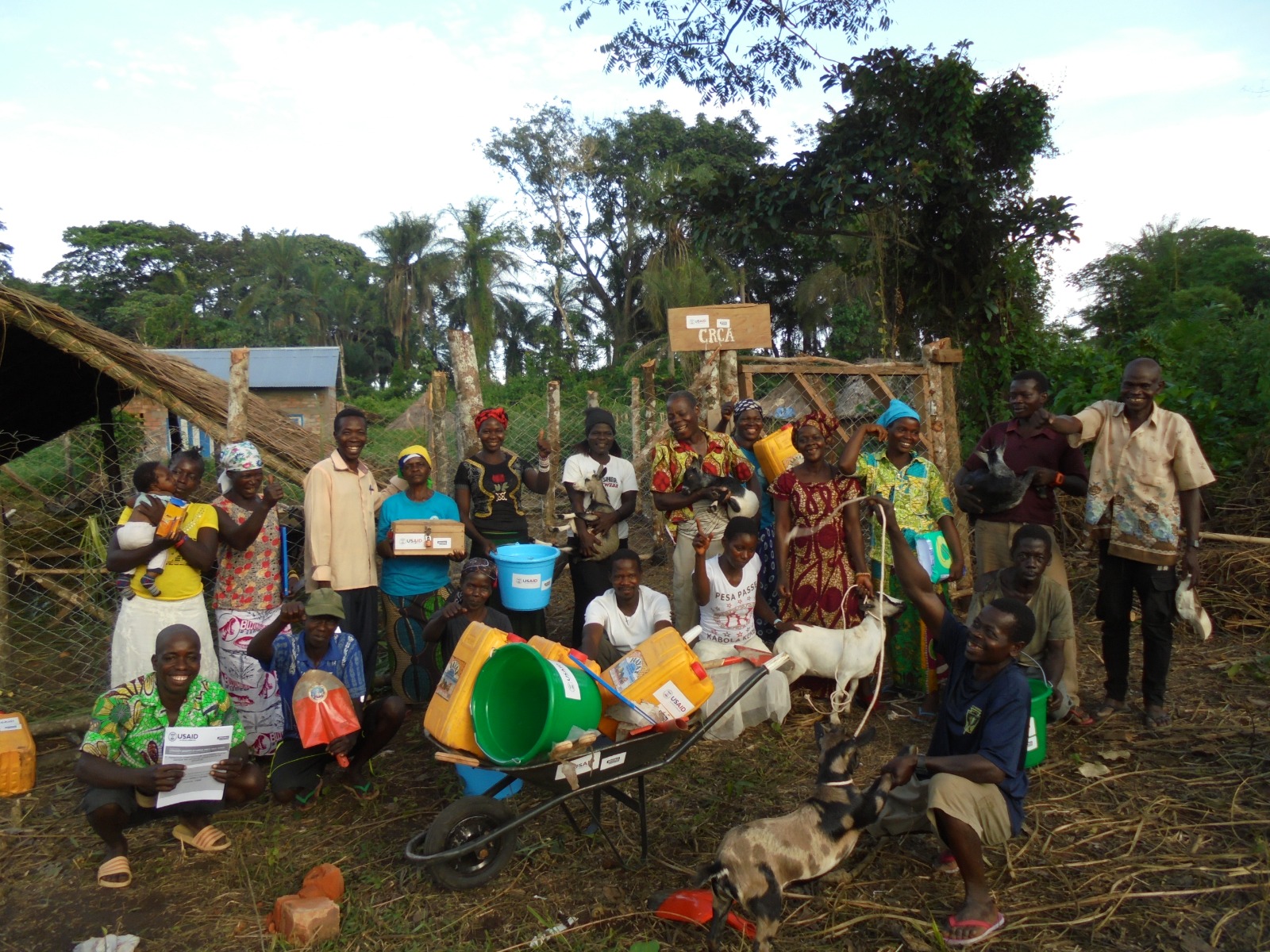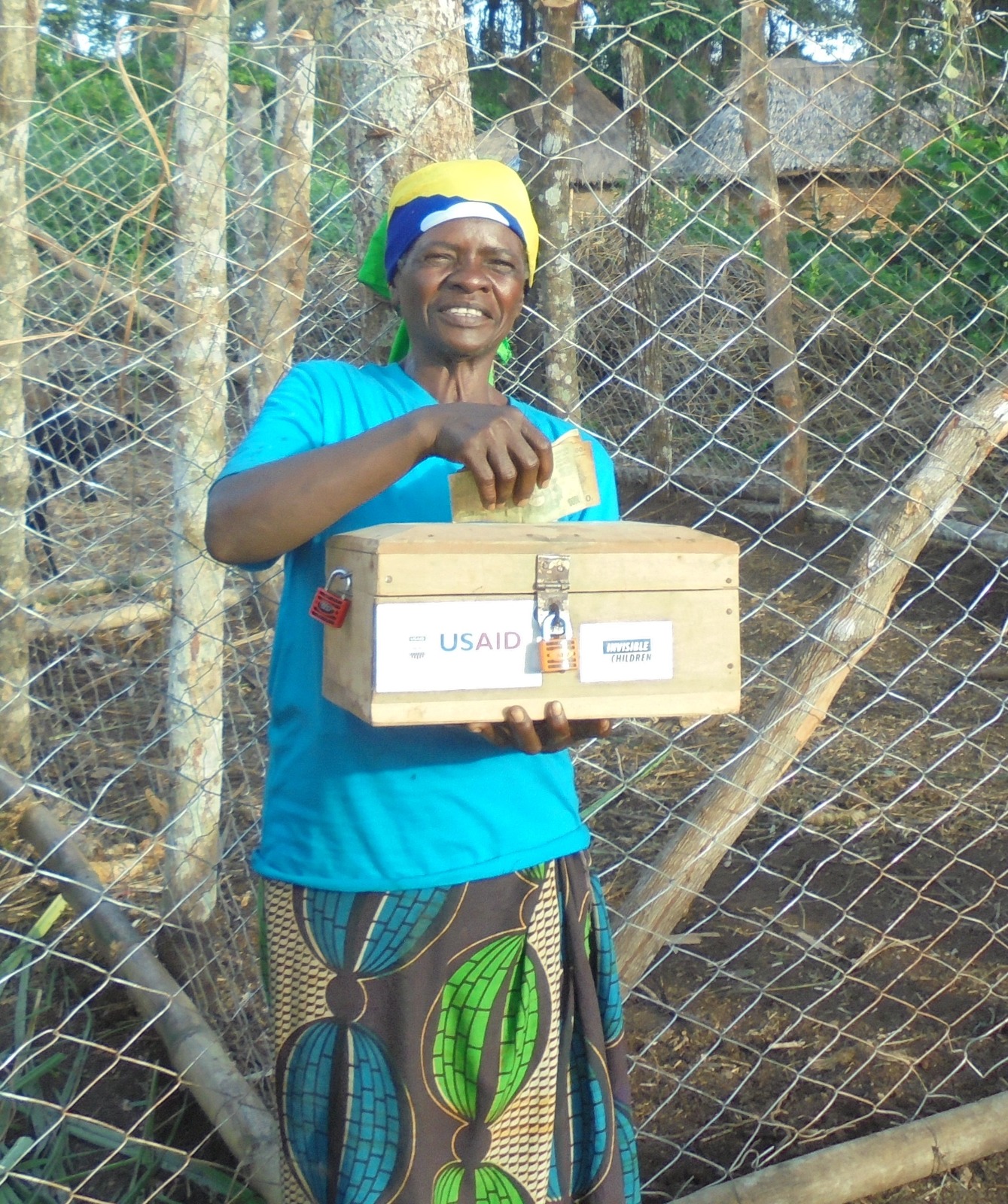As part of our USAID-funded Community Resilience in Central Africa (CRCA) Activity, we’re working closely with members of some of the most vulnerable communities in central Africa to improve economic opportunity and support sustainable livelihoods as part of a holistic approach to preventing violent conflict and helping communities thrive.
Lack of economic opportunity often goes hand-in-hand with violent conflict. In the communities where Invisible Children works, it can often be a source of tension among communities. Feelings of scarcity and lack of access to resources can often lead to conflict that sometimes becomes violent.
At the same time, armed conflict often interrupts civilian livelihoods. The presence of armed groups in and around a community can make it unsafe for farmers to access fields or for people to travel. In addition, insecurity in the region has severely limited access to basic infrastructure and social services that can support local communities and economies.

By investing in sustainable livelihood initiatives we are reinforcing the impact of community-based protection programs like the Early Warning Network and Peace Committee development in the Central African Republic (CAR) and the Democratic Republic of Congo (DRC).
Over the next two years, we will work with at least 45 communities on locally relevant projects that not only support participant livelihoods in the immediate but will have lasting impacts on the entire community. In each community, we help facilitate the formation of a local management group, made up of a diverse cross-section of the community. We then work with this group to identify needs and opportunities in their local economy, design a project, and provide business training to participants.

Already, several projects are underway. In one community, participants opted to begin raising goats. Along with training in business management, Invisible Children provided the participants with a number of goats as well as tools and shelters in which to raise them. Participants will breed the goats to be sold in local markets and to produce milk and cheese. Funds generated from the venture will then be reinvested into other participant business ventures through a Village Savings and Loan Association (VSLA).
Other participants have chosen to repair a local road, which connects their community to larger marketplaces nearby. Invisible Children is providing the funds for pay the wages of local laborers who will then invest part of their income into their local VSLA, allowing other members to take out small, low-interest loans to invest in future business ventures.

These projects are just getting started, but already the community members involved are excited and seeing benefits. Not only are participants hopeful for the opportunities to provide for their families and build their local economy, many have expressed an increased sense of purpose and connection to their community through their work. One community member, who is part of a road repair project in DRC told us,
“I see myself for the first time playing an important role in my community by contributing to the rehabilitation of the roads, which will facilitate our connection with other communities.”
Communities are also seeing these projects as an opportunity to work together, united around a common goal for greater economic stability for all across social groups. One local woman who is participating in a goat-raising project told us,
“Today I feel proud to be involved in participating in the socio-economic development of my community as a woman. The goat farm is not only an economic recovery activity for our village, but it is a symbol of our unity.”
With small investments and support from Invisible Children, livelihood project participants are being equipped to provide for their families, enhance their local economy, and transform their communities.
Help support our work to equip local leaders with the tools to not only prevent violence and improve local safety, but to help their families and communities thrive now and for years to come.
The programs described in this blog are made possible with the support of the American People through the United States Agency for International Development (USAID). The contents of this post are the sole responsibility of Invisible Children and do not necessarily reflect the views of USAID or the United States Government.

Think people should hear about this?